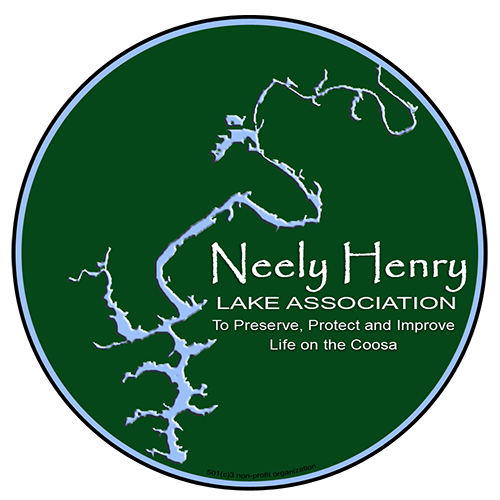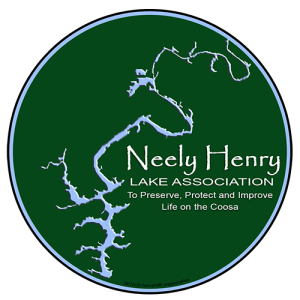Chemical Contaminants – Important!
For those of you that were not able to attend our November Members meeting, attached is an update on recent negative stories about the Coosa River and Neely Henry Lake. Take a minute to read. Hopefully, it will address any concerns that you may have.
Many of our members and the general public have contacted me and other NHLA board members expressing concern about the recent articles regarding environmental issues on the Coosa River generally and Neely Henry Lake specifically. Hopefully, this update will provide some perspective.
PFAS chemical contamination…These substances, found in waterways across America, are indeed a cause for concern and have been known to be in our waterways for many, many years. As more info has become available and testing has improved, the EPA, working with various state agencies, has been active over the past years to identify affected locations and to take actions to address the issue.
On Neely Henry Lake, once the issue was identified, Gadsden Water Works installed charcoal filters in an attempt to meet EPA standards. Recently, the EPA tightened its standards which caused a huge decrease in the Health Standards down to 0.004 parts per trillion for PFAS and 0.02 for PFOS. Actions are being taken to address the issue here on NH Lake. Gadsden Water Works recently announced that they are going to install a Reverse Osmosis facility which should reduce the PFAS percentage in the drinking water. By the way, it will be the largest of its kind in Alabama.
The change in standards (like changing the rules in the middle of the game) and subsequent readings caused some very negative headlines and media coverage for NH Lake. In going over the available data, it appears that NH Lake, identified as having “the highest concentration of PFAS, PFOS, etc. in Alabama” is not an accurate statement. The reality is that we don’t know the test results from other lakes on the Coosa River because NH Lake was the only lake sampled! Weiss Lake, above NH Lake and closer to the source of contamination, would logically have a higher result, but it wasn’t sampled. Likewise, lakes below NH Lake were not sampled either, so we don’t have any empirical data to compare in support of the “headlines”.
What we do know for a fact is the cause of the PFAS contaminants being in our lakes, to begin with. And that should be our collective focus. We have known for years that manufacturing in north Georgia and the resulting PFAS chemical discharge into streams and rivers is the cause. In essence, all lakes on the Coosa have been the recipients of PFAS pollution, of which we had nothing to do with!
To that end, Gadsden Water Works filed a lawsuit to stop the flow into the Coosa, and NH Lake, and a settlement were recently reached. Although terms are confidential, what we do know is that Gadsden will be building a state-of-the-art, Reverse Osmosis treatment facility at no cost to Gadsden, according to a news release. The largest of its kind in Alabama.
Endangered River…Another article declared the Coosa River as the 5th most endangered river in America. That’s an eye-catching statement, but based on our research, there is no specific scientific data or testing to support the claim. The focus of the story was not PFAS related, but with environmental issues associated with nutrient loading, which can negatively impact water quality and is an unfortunate but very common occurrence due to changing environmental conditions. A lot of generalities. The “entry” of the Coosa River was more like an essay contest, with the “best” essays being rated upon storyline, grammar, etc., and then rated 1 through 10!
We are not downplaying the importance of keeping our waterways clean and healthy…we do have challenges, absolutely! Most importantly, we should ALL be pulling together based upon the goal of the NHLA to “Preserve, Protect and Improve life on the Coosa”.
We will continue to monitor the issues and will try to keep you all informed with the facts as they are available. Please consult our website (www.NeelyHenryLake.org) for updates and follow us on our Facebook page for the latest.
Dave Tumlin, Pres., Neely Henry Lake Association

